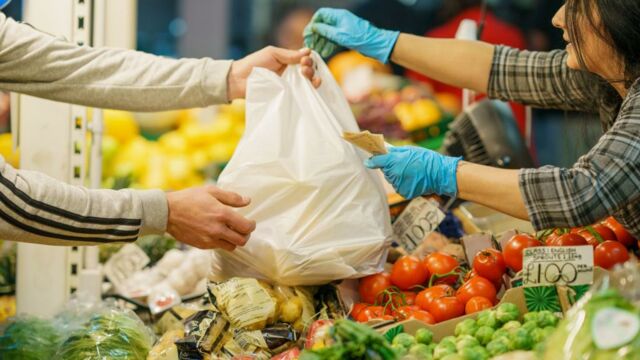A recent report by consumer watchdog Which? has detailed the 30 areas in the UK which are struggling most in the cost of living crisis with regards to affordable food. The Priority Places for Food Index, created by Which? and the University of Leeds, has ranked local areas by the likelihood of people needing extra support with their groceries.
Discover our latest podcast
In the report, which was released on Tuesday, the watchdog called on supermarkets to do more to help customers who are most in need.
Hardest hit

Amongst those on the list are communities in Birmingham, Merseyside and Sunderland, as per the Independent:
According to the index, England’s North East is the worst impacted, with 45 percent of local areas ‘in dire need of extra support’ because of relatively poor access to online shopping deliveries.
Birmingham Hodge Hill is considered the area most in need - with 100% of its local areas in need of extra support.
Factors at play include low income, limited access to affordable food and online shopping delivery not being available in certain deprived areas. All of these factors contribute towards people not being able to find healthy and affordable food.
10-point plan
The consumer group has drawn up a 10-point plan for supermarkets that will include making sure prices on shelves are more clear and easy to understand. They also urged supermarkets to do more to make healthy budget lines more widely available and consider giving targeted promotions to areas that need it most.
Michelle Morris, associate professor of nutrition and lifestyle analytics at the University of Leeds, commented, as per Sky News:
With so many people in the UK already suffering from food insecurity and the cost of living crisis making that much worse, we need to do all that we can to support those most in need to access affordable, healthy and sustainable foods.
Previous Which? research has found that many people have been forced to change their shopping habits as a result of inflation and rising costs. Reports showed that millions had started skipping meals and turning to food banks to help feed themselves and their families, as per Sky News.
Top 30 areas most in need of help
Birmingham, Hodge Hill: West Midlands
Knowsley, Merseyside: North West
Houghton and Sunderland South: North East
Birmingham, Northfield: West Midlands
Birmingham, Perry Barr: West Midlands
Blackley and Broughton: North West
Bradford South: Yorkshire and The Humber
North West Durham: North East
Blaydon: North East
Bishop Auckland: North East
Birmingham, Yardley: West Midlands
Bolsover: East Midlands
Birmingham, Hall Green: West Midlands
Don Valley: Yorkshire and The Humber
Bradford West: Yorkshire and The Humber
Liverpool, West Derby: North West
Wolverhampton North East: West Midlands
Bradford East: Yorkshire and The Humber
Easington: North East
South West Norfolk: East
Birmingham, Erdington: West Midlands
Rochdale: North West
St Helens South and Whiston: North West
Barnsley East: Yorkshire and The Humber
Louth and Horncastle: East Midlands
Huddersfield: Yorkshire and The Humber
St Ives: South West
Sheffield, Brightside and Hillsborough: Yorkshire and The Humber
Wolverhampton South East: West Midlands
Doncaster North: Yorkshire and The Humber
Sources used:
- The Independent 'Top 30 areas most in need of help to access affordable food'
- Sky News 'Cost of living: The areas most likely to struggle with access to affordable food'















